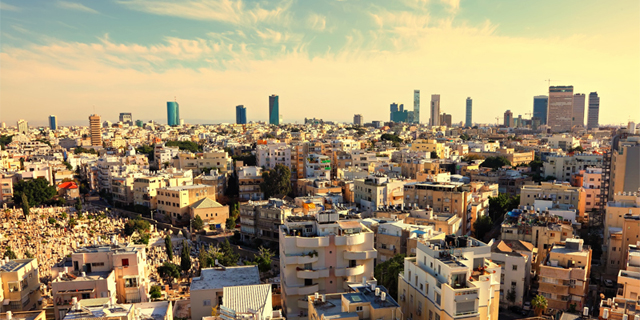
Analysis
If Tel Aviv is as expensive as San Francisco, which city will be Israel’s Texas?
A weakening dollar and price increases made Tel Aviv the most expensive city in the world according to the Economist. Could that spell the big exodus to Israel’s periphery?
Sophie Shulman and Lital Samet | 14:41, 02.12.21
For the first time, Tel Aviv is the most expensive city in the world according to the cost of living rating of the Economist's Research Unit (EIU). The coastal city climbed from fifth place in the previous ranking, surpassing Paris, which is now second, as well as Singapore. According to the authors of the ranking, Tel Aviv's rise to the top is due to an increase in prices, as well as the strengthening of the shekel against the dollar.
The city’s new status was not created in a vacuum though. In the past three years, incessant capital raising by technology companies, most of which are centered in the heart of Tel Aviv, has brought the city to new heights, which can be noticed by many signs: The number of new or remodeled buildings that inhabit the high-tech companies, the wage levels of the employees in the tech sector, and of course in the cost of living.
These days, Tel Aviv can serve as a fine replacement for San Francisco when studying wealth accumulation and social disparities. For decades, the Bay Area, Silicon Valley’s core, attracted the best technology giants and became a sort of extreme case study. These days, however, it is enough to walk around the streets of Tel Aviv, where the older residents, as well as the young people who do not work in high-tech, vacate apartments for those whose starting salary is double the national average.
But in every crisis, there is also an opportunity. It is possible that what is happening now to Tel Aviv will, in the long run, lead to a solution to a problem that no Israeli government has been able to fix: increasing development and the population in the country’s periphery and reducing social gaps.
If we consider the American example again, it is possible that the excessive price increases in Tel Aviv will push the high-tech ecosystem to Beer Sheva or the Galilee. After all, this is the process that began in the U.S. during Covid, with companies leaving California in favor of Texas, which can be seen as a kind of an American Beer Sheva - It is remote, cheap in both real estate and cost of living, allows for tax benefits and has good higher education institutions. In the last two years, rental prices in the Bay Area of San Francisco have fallen by 27% compared to the eve of the pandemic, and the office vacancy rate has jumped to 16.7%, a decade-long low in occupancy.